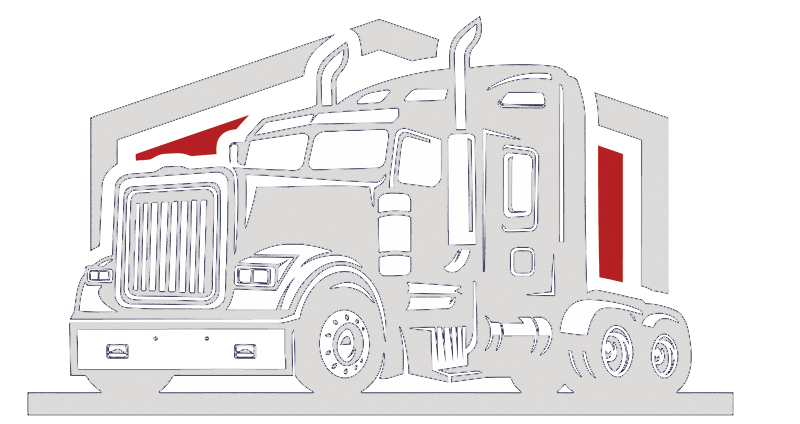The Benefits of Electronic Logging Devices (ELDs)
Navigating the complexities of modern technology can be a daunting prospect for many businesses. Electronic Logging Devices (ELDs) are one such technology that offer immense potential for streamlining operations and increasing efficiency. But what exactly is an ELD, and how can it help businesses? At Mail Links Logistics, we provide a comprehensive overview of ELDs and the benefits they can offer.
What is an ELD?
An ELD is an electronic device connected to a vehicle’s engine to monitor its use. It is used to track hours of service (HOS) and ensure that drivers are complying with the regulations set by the Federal Motor Carrier Safety Administration (FMCSA).
How do ELDs work?
ELDs are connected to a vehicle’s engine and use software to track the vehicle’s performance. They monitor engine performance, speed, and other data points to record the vehicle’s performance accurately. This data is then used to provide insights into the driver’s performance and ensure that they follow FMCSA regulations.
Fields are also used to diagnose various engine problems and provide information to mechanics on how to maintain the vehicle properly. They can detect problems with fuel efficiency, emissions, and engine performance and alert mechanics to potential issues before they become significant problems. Additionally, fields can help mechanics diagnose and troubleshoot engine issues quickly and accurately. This helps to avoid costly repairs and maintain a safe and efficient vehicle. Additionally, fields can be used to track the vehicle’s fuel efficiency and alert the driver to any potential problems. This helps drivers stay informed and reduce their fuel costs.
Who needs to use an ELD?
ELDs are required for commercial drivers operating a vehicle with a gross vehicle weight rating (GVWR) of more than 10,001 pounds. This includes vehicles used for hauling cargo, buses, tow trucks, and other commercial vehicles.
The FMCSA requires that all commercial drivers have a valid CDL and medical certificate. Drivers must also have a valid DOT number, which is used to report the driver’s medical information to the FMCSA. Drivers must also adhere to all applicable federal, state, and local laws and regulations, such as hours of service and driver fatigue regulations. In addition, all commercial drivers must have a valid hazardous material endorsement (HME) if they are transporting hazardous materials.
The FMCSA also requires that all commercial drivers receive specialized training on the safe operation of their vehicles. Drivers must understand how to properly inspect and maintain their vehicles, as well as how to safely maneuver the vehicle in all types of weather and traffic conditions. They must also understand the laws and regulations that pertain to their vehicles, including speed limits, load limits, and other safety regulations. Finally, all commercial drivers must be familiar with the FMCSA’s safety inspection and driver qualification guidelines.
Are ELDs mandatory?
Yes, ELDs are required for all commercial vehicles that meet the criteria set by the FMCSA. Drivers who are required to use an ELD must have the device installed in their vehicle and must use it to track their hours of service.
The use of ELDs is designed to ensure compliance with federal hours of service regulations and reduce the potential for driver fatigue and other safety risks on the road. The devices are also intended to improve the accuracy of hours of service data and provide a more efficient way to track and manage driver logs. Additionally, ELDs offer other benefits, such as the ability to access data remotely and monitor vehicle performance. The FMCSA has also mandated that all ELDs be certified and registered with the FMCSA.
Overall, the goal of the ELD mandate is to improve safety on the road, reduce paperwork, and increase accuracy and efficiency. By requiring ELDs for all commercial ve
The Benefits of ELDs:
ELDs offer numerous benefits for businesses, including increased efficiency, improved safety, and compliance with FMCSA regulations. By tracking engine performance and providing insights into driver performance, ELDs can help companies to identify and address potential issues before they become a problem. Additionally, ELDs can help businesses save time and money by reducing the paperwork they must process.
ELDs can also help to improve customer service by providing more accurate information about delivery times and the location of shipments. This can help customers to plan their own schedules more efficiently and ensure that their expectations are met. Additionally, ELDs provide more detailed information about the routes that drivers are taking, which can be used to optimize routes for shorter travel times and improved fuel efficiency. Finally, ELDs can provide valuable insights into driver behavior, which can be used to provide training and coaching to improve safety and efficiency.
5 Short Questions and Answers about ELDs:
Three Takeaways from this Article:
Synopsis
At Mail Links Logistics, we provide a comprehensive overview of Electronic Logging Devices (ELDs) and the potential benefits they can offer businesses. ELDs are connected to a vehicle’s engine and use software to track the performance of the vehicle. They are required for commercial drivers who are operating a vehicle with a gross vehicle weight rating (GVWR) of more than 10,001 pounds and offer numerous benefits for businesses, including increased efficiency, improved safety, and compliance with FMCSA regulations. By understanding the benefits that ELDs can offer, businesses can make informed decisions about how to implement them in their organization best.

